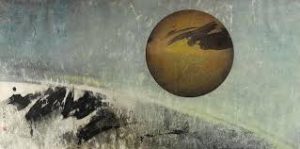 The Yogabliss, Two Rivers/RiverTree Yoga on-line Moving into Meditation classes met this morning. We are living in a country divided. Our meditation explored the many offerings of circle – especially its potential for inclusivity. We attuned to the intelligence of the body, wisdom of the heart and song of the soul.
The Yogabliss, Two Rivers/RiverTree Yoga on-line Moving into Meditation classes met this morning. We are living in a country divided. Our meditation explored the many offerings of circle – especially its potential for inclusivity. We attuned to the intelligence of the body, wisdom of the heart and song of the soul.
Body, heart and mind enable us to envision a future world in which all are welcome in “communitas”.
We explored creativity in the poetic works of Naomi Shihab Nye and John Paul Lederach. Naomi’s poem, Two Countries, doesn’t require many lines to convey our visceral need for belonging. John Paul Lederach’s many, many years as an international peace builder lead him to Haiku. The shortest of poems arise in the moment of intense presence. You might discover in his Unfolding Poem for the Moment We Are In, how Imagination’s short leap can reach your heart. You can listen to a wonderful interview, The Art of Peace, about his life’s work as a peace builder.
We drew on New Dimensions interview, Looking for the Deeper and Greater Unities, with mythologist Michael Meade. Michael sifts wisdom from myths and stories from around the world. He speaks to our division and the unifying forces we can build through both individual and collective practice.
Relaxed Reflection
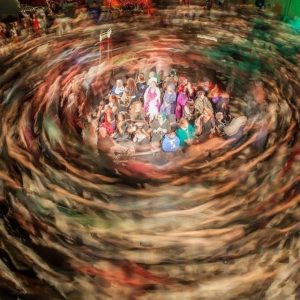 Circles offer wholeness. Circles offer healing: each of us are seen; each of us are heard. Circles offer ceremony: a space in which what is true can surface. Circles offer sanctuary. One of my teachers invited us to: “Forgive yourself for everything and take refuge.” He said in our practice “everything is included . . . everything is illuminated.” So here we are to shine the light of loving awareness on what is true . . . with each breath . . . or each sensation . . . or each sound . . .
Circles offer wholeness. Circles offer healing: each of us are seen; each of us are heard. Circles offer ceremony: a space in which what is true can surface. Circles offer sanctuary. One of my teachers invited us to: “Forgive yourself for everything and take refuge.” He said in our practice “everything is included . . . everything is illuminated.” So here we are to shine the light of loving awareness on what is true . . . with each breath . . . or each sensation . . . or each sound . . .
In the passing of time we begin to attune to the intelligence of our bodies . . . the wisdom of our hearts and the song of our souls.
Circles offer a place for people who come from a country divided. . . where they too can forgive themselves . . . take refuge . . . welcome everything . . . push away nothing . . . In Two Countries Naomi Shihab Nye writes:
Skin had hope, that’s what skin does.
Heals over the scarred place, makes a road.
Love means you breathe in two countries.
And skin remembers–silk, spiny grass,
deep in the pocket that is skin’s secret own.
Even now, when skin is not alone,
it remembers being alone and thanks something larger
that there are travelers, that people go places
larger than themselves.
Circles offer time . . . in the fullness of time we recognize thoughts . . . we see their nature . . . planning . . . worrying . . . remembering . . . imagining . . . we learn the ephemeral nature of thought . . . we begin to see thought as thought . . . We see thought as thought rather than as truth . . . rather than as who or what we are or what they are . . . In the fullness of time we gain some balance and stability in our minds . . . we can meet our thoughts with curiosity and care . . . we can meet others with curiosity and care . . . our thoughts about a person are not the person . . . We can include the person in our circle . . . we can meet them with loving awareness . .
Circles hold emotion . . . in the quiet holding we begin to feel energy, sensation enjoined with ideas and a story . . . maybe even an impulse . . . Here in the body the felt experience of emotion can begin to move through us. The nature of emotion unfolds . . . and we realize any emotion we’ve had has been felt by another . . . emotions are expressions of human experiences . . . fluid and moving . . . as natural as the weather . . . We have a choice between standing in the rain of feeling using mindfulness to understand it or we can can turn our attention away . . . back to a stabilizing ground . . . returning to the breath . . . sensation in the body . . . sound in the environment . . .
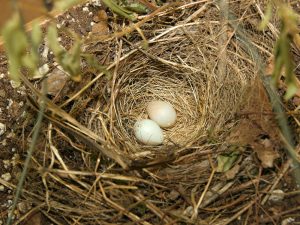 Forgive yourself for everything and take refuge . . . feel yourself in the circle in which everything is included . . . everything is illuminated . . . by the intelligence of our bodies . . . the wisdom of our hearts and the song of our souls. . . . We take refuge in the circle knowing that we live in a country divided . . . a world and all its life is in peril and we are physically separated from so many that we love.
Forgive yourself for everything and take refuge . . . feel yourself in the circle in which everything is included . . . everything is illuminated . . . by the intelligence of our bodies . . . the wisdom of our hearts and the song of our souls. . . . We take refuge in the circle knowing that we live in a country divided . . . a world and all its life is in peril and we are physically separated from so many that we love.
In his New Dimensions interview, Looking for the Deeper and Greater Unities, mythologist Michael Meade suggests that “to find wisdom in a divided world we have to go inside to find wisdom we have to look for underlying unites; that requires imagination. . .” From a deeper, mythic perspective he believes:
. . . we are in a collective right of passage . . . A right of passage has three main steps . . . the one that you depart from what existed, the world as you know it is no longer there and you will not be going back . . . That’s already happened . . . We have to join the world in its own remaking of itself . . . We’re on the threshold and two things happen there – an awakening of a vision and “communitas,” the moment when we realize we’re all in this together . . .
He says it’s
. . . the gesture and the willingness to invite and include everybody that matters . . . imagination is the key. . . people think we’re in different stories . . . we’re all in the same story . . . Our responsibility as individuals is to be as creative, empathic, compassionate as possible and hope that it effects others.
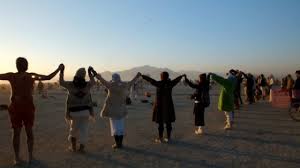 Our circle offers us communitas. It offers us a place for the creative imagining of the world. Michael believes our core imagination is lyrical, that everyone has a song in their soul – our inner lyric. We tune into the lyric of our soul through practice. In our practice we open to what is true – what matters most to us.
Our circle offers us communitas. It offers us a place for the creative imagining of the world. Michael believes our core imagination is lyrical, that everyone has a song in their soul – our inner lyric. We tune into the lyric of our soul through practice. In our practice we open to what is true – what matters most to us.
Tuning into our truth and listening for the song of our soul.
After decades of working in countries ravaged by violence and war, Mennonite peace builder, poet and scholar John Paul Lederach turned to haiku: five syllables followed by seven and again followed by five to get to a place of understanding. He believes building constructive social change requires both skills and the art of creative process. He says “ One thing haiku calls for, and what is often least found but most needed in times of war or its aftermath, is the ability to pause and be in the moment.” Here is part of his
‘Unfolding Poem’ for the Moment We’re In
Memoriale: Haiku And The Crowned Newness
On December 31, 2019, Chinese officials alerted the World Health Organization to an unknown form of pneumonia emerging in the city of Wuhan.
They suspected a new virus.
At the time, I did not hear this news. But the news and the newness came finding us.
It spreads like that.
I take haiku like vitamins, one-a-day. My vitamin Awe.
It’s an anti-viral thing.
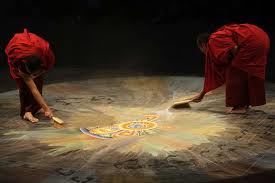 Haiku are nature bound, yet the 5-7-5 always weaves a delicate human filament. Through this frailest of poetic webs, newness outside flows into newness inside and then back out again.
Haiku are nature bound, yet the 5-7-5 always weaves a delicate human filament. Through this frailest of poetic webs, newness outside flows into newness inside and then back out again.
It’s a membrane thing.
Newness requires noticing and in noticing humanness begins.
It’s a compassion thing.
These days our frail membrane tries to remember forward. Remembering forward requires we keep our frail filaments soft and supple.
It’s a summoning thing.
Memoriale: Mindful remembering.
An Unfolding Poem — December 31, 2019 to
march two, ‘twenty
ad vice from an artichoke cactus
unfold the layers
that tighten and bind the heart
and your essence flies
xiv.
march twenty, ‘twenty
don’t you wish you were
the sun and could wrap your arms
around everyone
xvii.
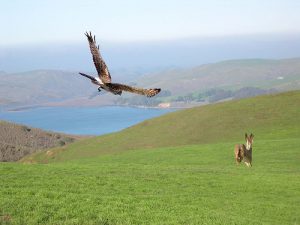 april five, ‘twenty
april five, ‘twenty
I heard the gulls, he said
when all the engines
went silent the earth’s soft hum
woke our benumbed hearts
xx.
april twenty five, ‘twenty
every doorway
a threshold between worlds
openness the key
xxii.
may eight, ‘twenty
how did the earth learn
to stay open and accept
everything that falls
xxiii.
may seventeen, ‘twenty
while blame shot arrows
clouds floated unpierced just
letting things fall through
My haiku: In circle forgive yourself everything
take refuge in soul song
love means you breathe in divided countries

